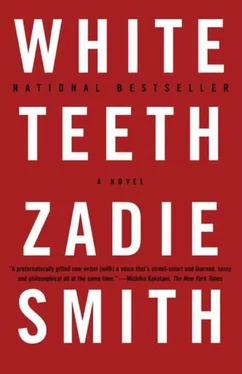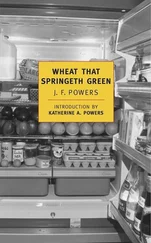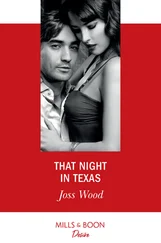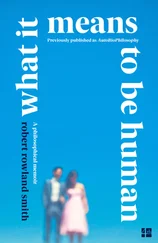Clara frowned. ‘See what?’
‘Clearly he disapproves of iconography in the mosque, he dislikes all heathen, unnecessary, dangerous decoration! A boy like that is destined for greatness, isn’t he?’
‘Maybe, Samad Miah, maybe not.’
‘Maybe he’ll go into government, maybe the law,’ suggested Clara.
‘Rubbish! My son is for God, not men. He is not fearful of his duty. He is not fearful to be a real Bengali, a proper Muslim. Here he tells me the goat in the photograph is dead. “I helped to kill the goat, Abba,” he says. “It kept on moving some time after we had split it in two.” Is that a boy who is fearful?’
It clearly being incumbent upon someone to say no, Clara said it with little enthusiasm and reached for the photograph Samad was passing her. There was Magid, dressed in his customary grey, standing next to the doomed goat with the old house behind him.
‘Oh! Look at his nose! Look at the break. He’s got a Roman nose, now. He looks like a little aristocrat, like a little Englishman. Look, Millat.’ Clara put the photo under Millat’s smaller, flatter nose. ‘You two don’t look so much like twins any more.’
‘He looks,’ said Millat after a cursory glance, ‘like a chief .’
Samad, never au fait with the language of the Willesden streets, nodded soberly and patted his son’s hair. ‘It is good that you see the difference between you two boys, Millat, now rather than later.’ Samad glared at Alsana as she spun an index finger in a circle by her temple, as she tapped the side of her head: crazee, nutso . ‘Others may scoff, but you and I know that your brother will lead others out of the wilderness. He will be a leader of tribes. He is a natural chief .’
Millat laughed so loud at this, so hard, so uncontrollably, that he lost his footing, slipped on a wash cloth and broke his nose against the sink.
Two sons. One invisible and perfect, frozen at the pleasant age of nine, static in a picture frame while the television underneath him spewed out all the shit of the eighties – Irish bombs, English riots, transatlantic stalemates – above which mess the child rose untouchable and unstained, elevated to the status of ever smiling Buddha, imbued with serene Eastern contemplation; capable of anything, a natural leader, a natural Muslim, a natural chief – in short, nothing but an apparition. A ghostly daguerreotype formed from the quicksilver of the father’s imagination, preserved by the salt solution of maternal tears. This son stood silent, distant and was ‘presumed well’, like one of Her Majesty’s colonial island outposts, stuck in an eternal state of original naivety, perpetual pre-pubescence. This son Samad could not see. And Samad had long learnt to worship what he could not see.
As for the son he could see, the one who was under his feet and in his hair, well, it is best not to get Samad started up on that subject, the subject of The Trouble with Millat , but here goes : he is the second son, late like a bus, late like cheap postage, the slowcoach, the catch-up-kid, losing that first race down the birth canal, and now simply a follower by genetic predisposition, by the intricate design of Allah, the loser of two vital minutes that he would never make up, not in those all-seeing parabolic mirrors, not in those glassy globes of the godhead, not in his father’s eyes .
Now, a more melancholy child than Millat, a more deep-thinking child, might have spent the rest of his life hunting these two minutes and making himself miserable, chasing the elusive quarry, laying it finally at his father’s feet. But what his father said about him did not concern Millat all that much: he knew himself to be no follower, no chief, no wanker, no sell-out, no fuckwit – no matter what his father said. In the language of the street Millat was a rudeboy, a badman, at the forefront, changing image as often as shoes; sweet-as, safe, wicked , leading kids up hills to play football, downhill to rifle fruit machines, out of schools, into video shops. In Rocky Video, Millat’s favourite haunt, run by an unscrupulous coke-dealer, you got porn when you were fifteen, 18s when you were eleven, and snuff movies under the counter for five quid. Here was where Millat really learnt about fathers. Godfathers, blood-brothers, pacinodeniros, men in black who looked good, who talked fast, who never waited a (mutherfuckin’) table, who had two, fully functioning, gun-toting hands. He learnt that you don’t need to live under flood, under cyclone, to get a little danger, to be a wise man. You go looking for it. Aged twelve, Millat went out looking for it, and though Willesden Green is no Bronx, no South Central, he found a little, he found enough. He was arsey and mouthy, he had his fierce good looks squashed tightly inside him like a jack-in-a-box set to spring aged thirteen, at which point he graduated from leader of zit-faced boys to leader of women. The Pied Piper of Willesden Green, smitten girls trailing behind him, tongues out, breasts pert, falling into pools of heartbreak… and all because he was the BIGGEST and the BADDEST, living his young life in CAPITALS: he smoked first, he drank first, he even lost it – IT! – aged thirteen and a half. OK, so he didn’t FEEL much or TOUCH much, it was MOIST and CONFUSING, he lost IT without even knowing where IT went, but he still lost IT because there was no doubt, NONE, that he was the best of the rest, on any scale of juvenile delinquency he was the shining light of the teenage community, the DON, the BUSINESS, the DOG’S GENITALIA, a street boy, a leader of tribes. In fact, the only trouble with Millat was that he loved trouble. And he was good at it. Wipe that. He was great .
Still, there was much discussion – at home, at school, in the various kitchens of the widespread Iqbal/Begum clan – about The Trouble with Millat , mutinous Millat aged thirteen, who farted in mosque, chased blondes and smelt of tobacco, and not just Millat but all the children: Mujib (fourteen, criminal record for joyriding), Khandakar (sixteen, white girlfriend, wore mascara in the evenings), Dipesh (fifteen, marijuana), Kurshed (eighteen, marijuana and very baggy trousers), Khaleda (seventeen, sex before marriage with Chinese boy), Bimal (nineteen, doing a diploma in Drama); what was wrong with all the children , what had gone wrong with these first descendants of the great ocean-crossing experiment? Didn’t they have everything they could want? Was there not a substantial garden area, regular meals, clean clothes from Marks ’n’ Sparks, A-class top-notch education? Hadn’t the elders done their best? Hadn’t they all come to this island for a reason? To be safe. Weren’t they safe ?
‘ Too safe,’ Samad explained, patiently consoling one or other weeping, angry ma or baba, perplexed and elderly dadu or dida, ‘they are too safe in this country, accha? They live in big plastic bubbles of our own creation, their lives all mapped out for them. Personally, you know I would spit on Saint Paul, but the wisdom is correct, the wisdom is really Allah’s: put away childish things . How can our boys become men when they are never challenged like men? Hmm? No doubt about it, on reflection, sending Magid back was the best thing. I would recommend it.’
At which point, the assembled weepers and moaners all look mournfully at the treasured picture of Magid and goat. They sit mesmerized, like Hindus waiting for a stone cow to cry, until a visible aura seems to emanate from the photo: goodness and bravery through adversity, through hell and high water; the true Muslim boy; the child they never had. Pathetic as it was, Alsana found it faintly amusing, the tables having turned, no one weeping for her, everyone weeping for themselves and their children, for what the terrible eighties were doing to them both. These gatherings were like last-ditch political summits, they were like desperate meetings of government and church behind closed doors while the mutinous mob roamed wild on the streets, smashed windows. A distance was establishing itself, not simply between fathersons, oldyoung, borntherebornhere , but between those who stayed indoors and those who ran riot outside.
Читать дальше












